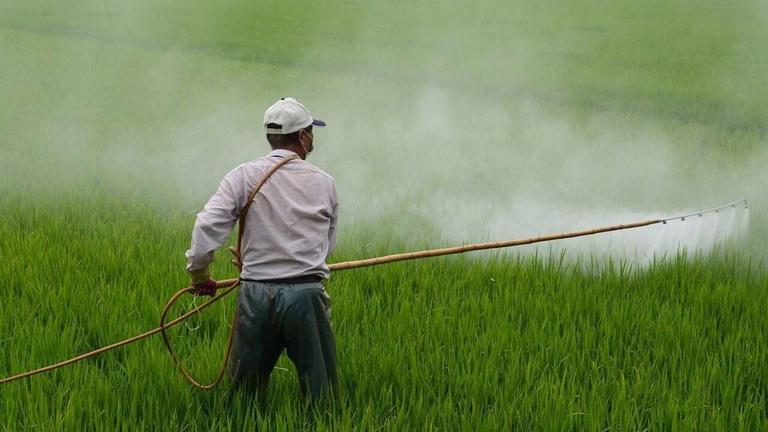Tags
Launch of Seed Sale of RobiNOweed Basmati Rice Varieties for Direct Seeded Rice Cultivation
Pusa Institute launched the herbicide-tolerant RobiNOweed Basmati rice varieties Pusa Basmati 1979 and Pusa Basmati 1985 for Direct Seeded Rice cultivation to address major agricultural concerns.

Launch of Seed Sale of RobiNOweed Basmati Rice Varieties for Direct Seeded Rice Cultivation
Pusa Institute, New Delhi today (May 22, 2024) launched the seed sale of RobiNOweed Basmati Rice Varieties namely, Pusa Basmati 1979 and Pusa Basmati 1985 tolerant to Imazethapyr 10% SL for Direct Seeded Rice cultivation. Speaking on the occasion, Dr Ashok Kumar Singh, the Director, IARI, New Delhi highlighted that the major concerns in rice cultivation in northwestern India include (a) depleting water table (b) labor scarcity for transplanting of rice and (c) the emission of greenhouse gas, methane under transplanted flooded condition.
Direct-seeded rice can address all these concerns. However, weeds are a major problem under DSR which needs to be addressed in order to make DSR a success. In this direction, concerted research at ICAR-IARI, New Delhi has led to the development of two RobiNOweed Basmati rice varieties, Pusa Basmati 1979 and Pusa Basmati 1985 which are the first Non-GM herbicide tolerant Basmati rice varieties tolerant to Imazethapyr 10% SL to be released for commercial cultivation in India.
Pusa Basmati 1979
Pusa Basmati 1979 is a MAS-derived herbicide tolerant near-isogenic line of Basmati rice variety “PB 1121” possessing mutated AHAS allele governing tolerance to Imazethapyr 10% SL with seed to seed maturity of 130-133 days and average yield of 45.77 q/ ha under irrigated transplanted condition across two years of testing in the National Basmati trials.
Pusa Basmati 1985
Pusa Basmati 1985 is a MAS-derived herbicide tolerant near-isogenic line of Basmati rice variety “PB 1509” possessing mutated AHAS allele governing Imazethapyr tolerance with seed-to-seed maturity of 115-120 days and an average yield of 5.2 t/ha under irrigated transplanted condition across two years of testing in the National Basmati trials.

He explained in detail the package of practices of these two rice varieties under DSR with necessary precautions to be adopted for effective management of weeds in these two crop varieties. These two varieties being tolerant to the broad-spectrum herbicide, Imazethapyr 10% SL will be helpful in effective control of weeds under DSR, thus economizing cost of Basmati rice cultivation. It will also help in addressing the challenges of scarcity of labour, water and methane emission from rice cultivation.
On this occasion, Dr P.K. Singh, Commissioner, Agriculture, Ministry of Agriculture and Farmers Welfare, Government of India also emphasized the importance of these improved rice varieties with technologies such as tolerance to Imazethapyr 10% SL in sustaining rice cultivation. Dr. D.K. Yadav, ADG(Seeds), ICAR, New Delhi also highlighted that these two Basmati rice varieties will be a boon for the farmers of the Basmati GI area in the country.
Dr C. Viswanathan (Joint Director, Research), Dr R. N. Padaria (Joint Director, Extension), Dr Gopala Krishnan (Head, Division of Genetics), Dr Gyanendra Singh (In-Charge. Seed Production Unit), Head of the divisions and scientists of Pusa Institute, farmers, seed companies, and media graced the occasion.
https://krishijagran.com/news/launch-of-seed-sale-of-robinoweed-basmati-rice-varieties-for-direct-seeded-rice-cultivation/Published Date: May 22, 2024






